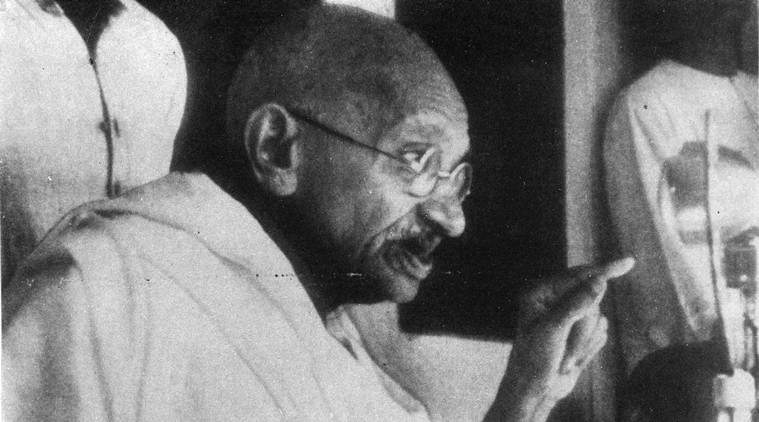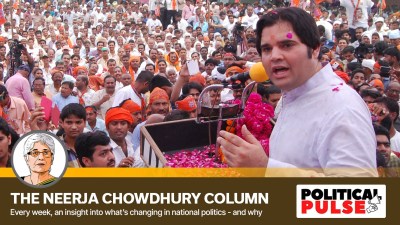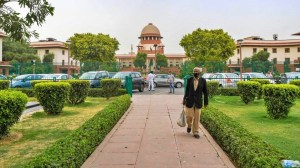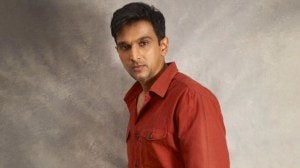- India
- International
Today, more than ever, we need Gandhi’s economic wisdom
Gandhiji’s economy is sacred and also scientific. We don’t realise that Gandhiji, though he donned the dress of a villager, was an urban mind.
 We should realise that Gandhiji was a Rama bhakt. For him, political independence went along with constructing a Rama rajya or a civilisation that is decent.
We should realise that Gandhiji was a Rama bhakt. For him, political independence went along with constructing a Rama rajya or a civilisation that is decent.
We definitely need Gandhi. But the point is: How do we utilise his wisdom to sort out the mess we have created in the last seven decades? When you look at it this way, you realise that you have to take Gandhi’s economic wisdom, rather than the many, many other things that he did. What is Gandhi’s economic wisdom? J C Kumarappa called it “economy of permanence”. But I call it “sacred economy” because Gandhi, in a fundamental sense, married the sacred and the economic, while all of us, in the last seven decades, have been separating the two.
We should realise that Gandhiji was a Rama bhakt. For him, political independence went along with constructing a Rama rajya or a civilisation that is decent. When he married politics and Rama rajya, he did so at the level of the economic. For Gandhiji, economy meant construction of jobs, more than production, more than profits. In the last 70 years, we have been increasing production only because it meant a lot of profit for a few people. We genuinely thought that those few people would transfer the profit to the masses. Jawaharlal Nehru tried seriously to achieve that, as did others. I am sure even our present PM is trying to achieve that. Unfortunately, this has not happened.
The economy of over-production and excess profit and growth is collapsing. Some may be wishfully thinking it will revive. But most sensible people think it won’t. You can’t simply go on constructing and we can’t always have a 12 per cent growth — that can be achieved only by cancer, not by human beings. When Greta Thunberg is raising her voice, saying, “You people are destroying my world”, she can only cry because the country and continent in which she lives, as well as America, have converted so completely to homogenised economic systems that they may be unable to go back. But as a proud Indian, I know that the other economy, which was dear to Gandhiji, is alive in India. So there is a possibility of going back to nature.
How can we achieve this? Only the way Gandhiji tried to achieve it. By marrying the best in city people with the best in village people. We don’t realise that Gandhiji, though he donned the dress of a villager, was an urban mind. He had gone to England, South Africa, he knew many languages; he had, among his friends, socialists, communists and Catholics. He understood the world. And he was telling the young people of those days, whether it was Subhash Chandra Bose or Nehru or hundreds of other highly-educated city people, to go to villages. He was also asking the village people, too, to go to the city for inspiration.
Gandhiji’s economy is sacred and also scientific. How do you save nature? By actually shifting to production systems that use less of automation, that treat nature as less of a raw material. When I talk of sacred economy, I don’t only mean the handmade. A lot of people think that Gandhiji talked of the handmade in a Brahminical way — meaning only that and nothing else. A hundred years after Gandhiji, we cannot draw the line between the handmade and the machine-made. But we have to start the scale from the complete handmade, as the most sacred. A little less handmade is a little less sacred and so on.

The alternative needs time, it needs hundreds and thousands of what Gandhiji called constructive workers, who will go to the villages and arm them with systems. Over the last 250 years, millions of dollars have been spent in industry and the knowledge accumulated is in the construction of systems of accounting, of management, production, managing markets, managing production, etc. The villagers don’t have it. Mr Tata has this. The weaver doesn’t.
We should inspire thousands of young people, who are falling on the streetside every day because of job loss, inspire them to go to the village, and work like activists of the freedom struggle. Work like Kumarappa. He was an US-trained economist. He changed his dress, threw away his salary and happily worked amongst the people, improving the systems of production of handloom, oil, soap, etc. If we sit in our comfortable chairs and criticise others, the country will collapse. Gandhiji did not just talk. He acted.
We need the Gandhi who constructed an economic dream. And not just a political dream. When we look at Gandhi’s dream as political, then we want to kill him. Because a lot of people are trying to convince you that Gandhiji sold out to Pakistan. That is ignorance.
I don’t want to talk about politics. Because politics has become a choice between two parties, or pieces of a few parties. But essentially, it is the same economy. They talk about the village, they are for the city. They talk about the small, they enjoy the smart city. The people followed our PM because they thought he was talking of Rama Rajya, and they gave him a massive mandate. It was a positive mandate. To construct a Rama Rajya, which, we should realise, is ashrama rajya. When Rama fought his enemy, he had the monkeys and the birds and the trees as his soldiers. And what was he trying to save from the rakhshasa? Sita, who is nature. That’s where our PM, though he is so popular and competent, has misread the message given by the people. That message was not for the mere construction of a Ram temple, but for the construction of a beautiful dream, which is Rama rajya.
This article first appeared in the October 19 print edition under the title ‘Why I need Gandhi today: The sacred economy’ (Prasanna is a Kannada playwright and founder of Gram Seva Sangh. As told to Amrita Dutta)
EXPRESS OPINION
Apr 25: Latest News
- 01
- 02
- 03
- 04
- 05










































